Marine Life & Conservation
Sharks: A Lost Message
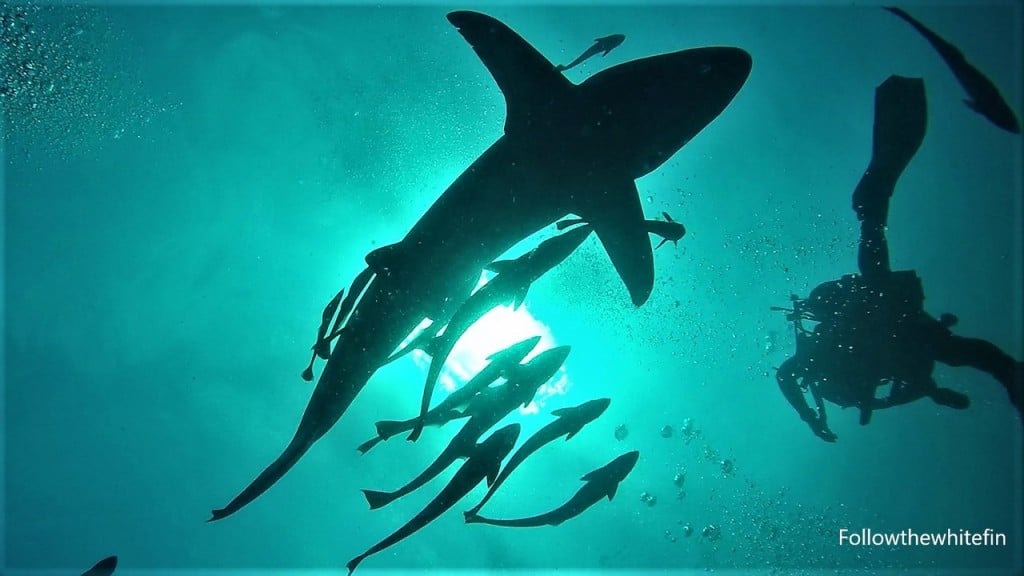
There are many motivating articles, scientific papers and blogs that prove how amazing and valuable sharks are. So why is this message still not getting across? And why are sharks still not valued and seen as a vital component to sustain our current environment by the general public?
The big question – Why is there is no urgency to save sharks?
I believe it comes down to what affects us personally. If sharks go extinct, why does this matter to non-divers and to ‘Bob’ who lives in Coventry and rarely visits the oceans? Well, apart from the depletion of sharks resulting in the loss of commercially important fish species (yes that includes that lovely fish and chips you had last night), numerous scientific findings have also shown that the loss of sharks would impact the survival of mankind! Dramatic sentence, yes, but to the point and true.
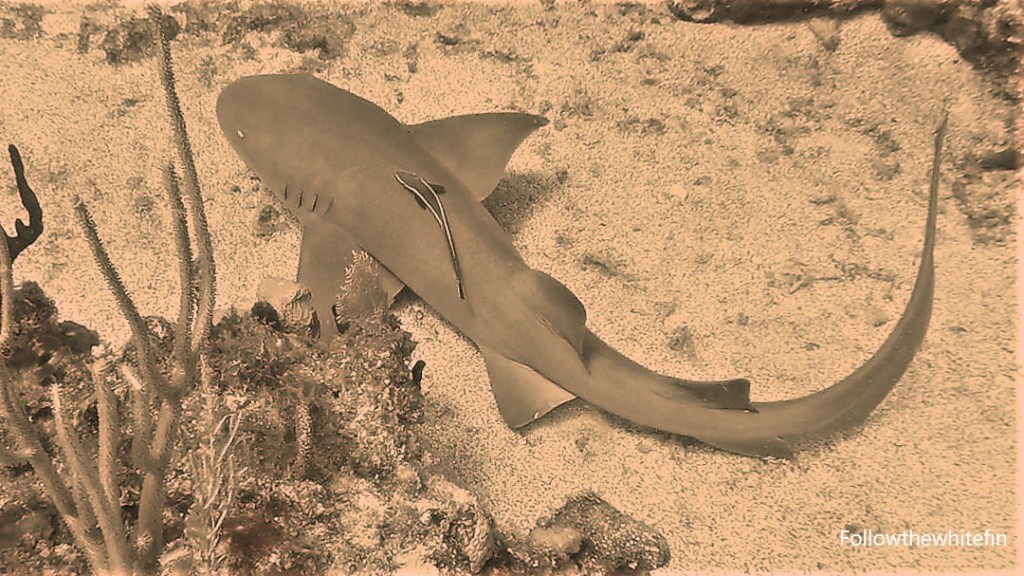
Lets look at the facts:
Sharks, as apex predators, play a very important role in our oceans. By keeping the species below them in the food chain in check and maintaining competition, sharks ensure that species diversity thrives. Sharks take the lead keeping our largest and most important ecosystem (the ocean) healthy. This ecosystem controls the planet’s temperature and weather, provides a third of our world with food, removes half of the atmosphere’s anthropogenic carbon dioxide, and produces more oxygen than all the rainforests combined. Pretty important! But why aren’t we being told this?*
I have been very lucky to work closely with shark experts Fernando Reis and Manuela Domingues from Shark Educational Institute (SEI) this week at Freestyle divers, UAE, to create a tailored shark workshop specific to the local species of Blacktip Reef Sharks. This workshop involves educating divers about sustainable diving practices around these amazing creatures, identifying behavioural habits and using different techniques to record valuable information for future Citizen-Science. But I believe the most important part of the workshop is to get this message across: why sharks matter.
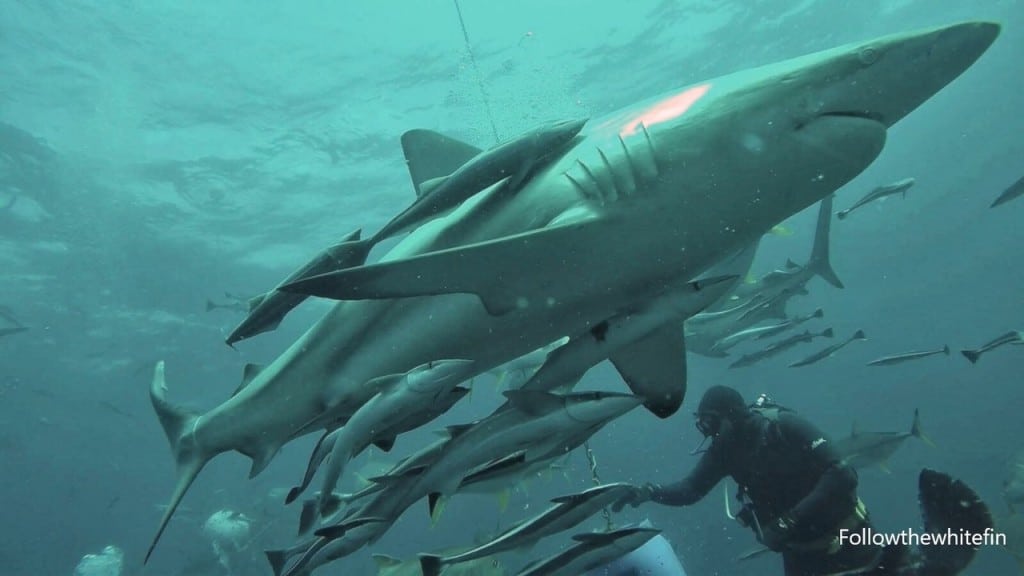
During the preparation for the workshop, most discussions focused on our diving experiences around the world with different species of shark (there are over 500 species by the way 😊), but taking a pause from these stories, we sat down to discuss why most of the world does not respect, admire or understand the importance of sharks as we as divers do. And to answer my question: why is there is no urgency to save sharks?
From his experience Fernando explained that there was a lack of communication in different areas. Firstly, between research sciences and the Environmentalist community, but also the communication to the rest of the world. The technical language sometimes used by scientists can isolate the public, which in turn leads to them closing off to the subject… thus the message is lost. To get people to care and listen, a certain amount of marketing skills are needed, which unfortunately, most scientists do not possess.
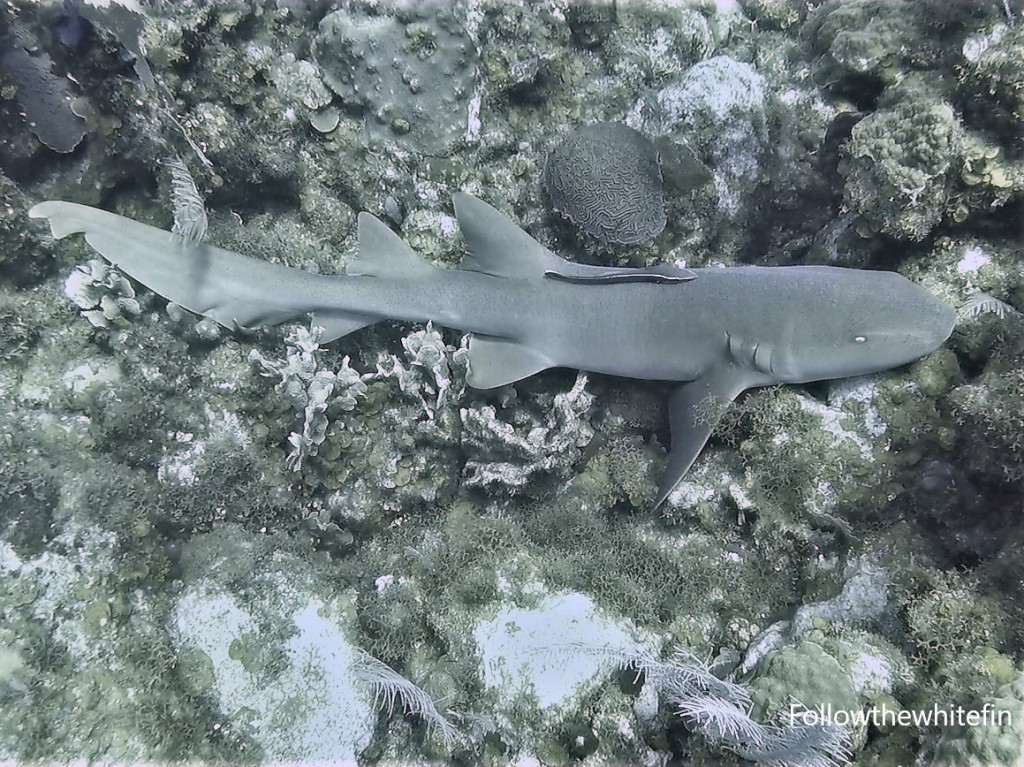
We also touched on the subject of trends, even within our line of work. 20 years ago, the job title ‘Ecologist’ was held at high esteem; now it’s ‘Conservationist’. I would class myself as a ‘Conservationist’ so this is not an attack on Conservationists, Ecologists or Environmentalists; they do a fantastic job and work exceptionally hard to protect and preserve. The issue is the title itself: ‘Conservationist’. We are at a point where conservation is too late – we are now in the period of recovery.
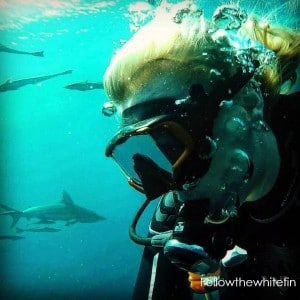 So much doom and gloom, but is there a solution? Whilst the current future for sharks is bleak (and evidently ours too), I believe there is also hope. Organisations like Shark Educational Institute (SEI) are using the tactic of education in the form of workshops to share vital information about the importance of sharks. These workshops are tailored and created to link in with their specific audience’s needs and in each specific environment. For example, educating fishermen as to why they should help look after sharks. First you need to listen to them and hear their problems instead of enforcing rules – think like them and then we can help them come up with a solution. They must want to care, not be forced. Also working in schools to educate the next generation has proven to have a huge impact in family dynamic and how they change their consumption choices to be more sustainable.
So much doom and gloom, but is there a solution? Whilst the current future for sharks is bleak (and evidently ours too), I believe there is also hope. Organisations like Shark Educational Institute (SEI) are using the tactic of education in the form of workshops to share vital information about the importance of sharks. These workshops are tailored and created to link in with their specific audience’s needs and in each specific environment. For example, educating fishermen as to why they should help look after sharks. First you need to listen to them and hear their problems instead of enforcing rules – think like them and then we can help them come up with a solution. They must want to care, not be forced. Also working in schools to educate the next generation has proven to have a huge impact in family dynamic and how they change their consumption choices to be more sustainable.
Governments and media also have an important role to play in the recovery of shark populations, but that is a whole other blog!
Overall people must want to care, and unfortunately to care it must affect them. Us shark lovers know and understand how vital sharks are, but this message needs to go further!
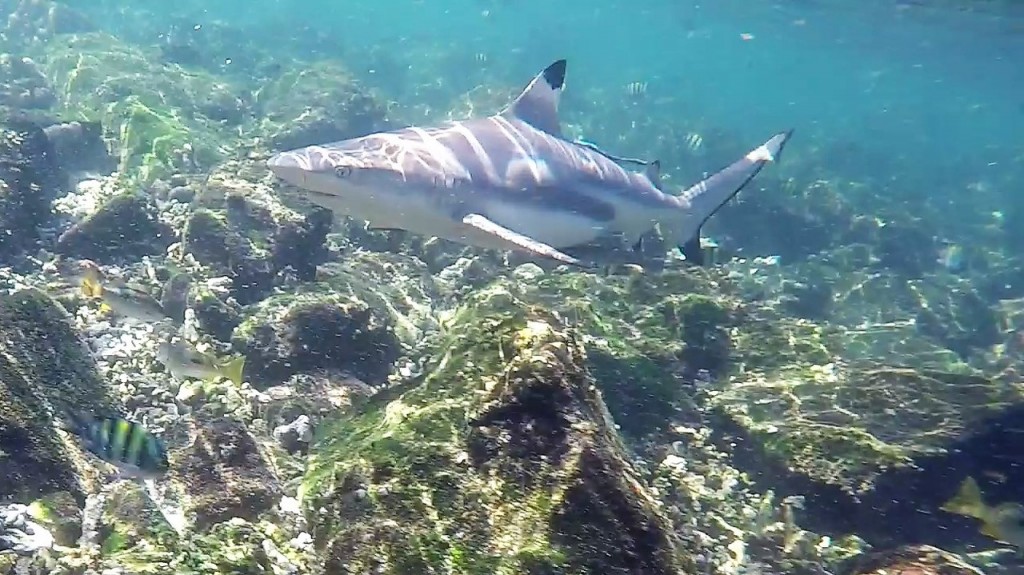
‘In the end we only conserve what we love,
we only love what we understand,
we will understand only what we are taught.’
– Mr. Baba Dioum
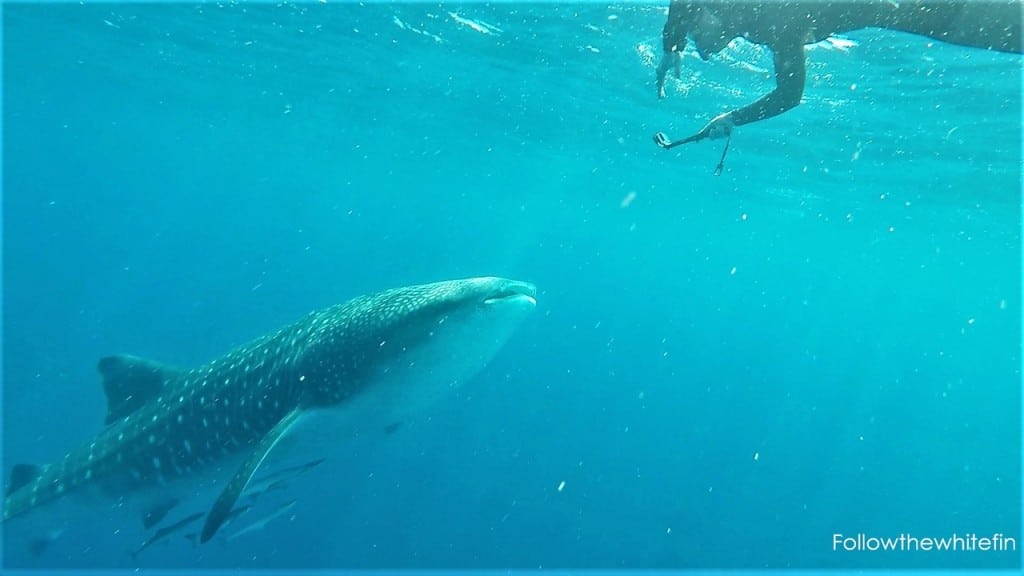
*References taken from:
www.seashepherd.org.au/apex-harmony/overview/shark-importance.html
http://eu.oceana.org/en/importance-sharks
Find out more about Kayleigh at www.followthewhitefin.com.
Marine Life & Conservation
Paul Watson Released as Denmark Blocks Japan’s Extradition Bid

Renowned anti-whaling activist Paul Watson has been released from custody in Greenland after spending five months in detention. Denmark’s Justice Ministry rejected Japan’s request for his extradition, citing insufficient guarantees that his time already served in custody would be credited against any potential sentence.
The 74-year-old Canadian-American was arrested on July 21 in Nuuk, Greenland’s capital, when his ship docked to refuel. His arrest was based on a 2012 Japanese warrant related to a 2010 encounter in Antarctic waters. Japan alleged Watson obstructed operations and caused damage to a whaling research ship during efforts to disrupt illegal whaling. Watson has consistently denied these claims, maintaining his commitment to marine conservation.
Denmark, which oversees extradition matters for Greenland, concluded that while the legal conditions for extradition were met, the lack of assurances from Japan regarding time-served credit made extradition untenable.
In a video shared by his foundation, Watson expressed gratitude and relief, saying, “After five months, it’s good to be out… and good to know they’re not sending me to Japan.” He added that the most difficult part of his time in custody was being separated from his two young sons.
Watson is a pioneering figure in marine conservation, known for founding the Captain Paul Watson Foundation in 2022 after decades of activism with the Sea Shepherd Conservation Society. His bold efforts to defend marine life have earned him widespread support, including from celebrities and conservationists. His work has also been featured in the acclaimed reality TV series Whale Wars.
Watson’s lawyer, Jonas Christoffersen, praised the decision, stating, “We are happy and relieved that Paul Watson is now free.” He added that Watson is eager to reunite with his family and continue his vital work.
The arrest occurred while Watson’s vessel, the M/Y John Paul DeJoria, was en route to the North Pacific with a team of 26 volunteers to intercept a Japanese whaling ship. His foundation described the arrest as politically motivated and emphasized that Watson’s actions were focused on ending illegal whaling practices.
Japan resumed commercial whaling in 2019 after leaving the International Whaling Commission, asserting that whale meat is a cultural tradition. Conservationists, however, continue to challenge these practices, highlighting their impact on marine ecosystems.
Despite the challenges, Watson remains steadfast in his mission to protect marine life and bring attention to whaling practices. His dedication to ocean conservation has made him a globally respected advocate for the environment.
Marine Life & Conservation
12 Days of Zero-Waste Fish-mas

This holiday period, the Marine Conservation Society, the UK’s leading ocean membership charity, invites you to make some simple changes to eating fish this Christmas to help our seas.
Dr Kenneth Bodles, Head of Fisheries and Aquaculture at the Marine Conservation Society, said, “During the festive season, our consumption increases, but so does waste. Sustainability isn’t just about where food comes from – it’s also about how you use it. By reducing waste and making the most out of your seafood, you’re not only taking steps to be more ocean-friendly, but can also help to cut costs during what is often one of the most expensive times of the year”.
The Marine Conservation Society has compiled twelve tips on how to consume seafood sustainably with zero-waste this Christmas:
Buy whole fish instead of fillets
Instead of fillets, consider buying whole fish such as salmon, hake, or lemon sole. By adopting a “nose to tail” approach with cooking, whole-baked fish not only feeds a crowd, but also helps to minimise waste and maximise sustainability by using up every part of the animal, including bones, skin, and fat.
Make fish stock
Leftover fish bones or shells can be put to good use by boiling them to make a nourishing fish stock or bisque. This can be frozen and preserved for later use and makes for a flavourful base in a soup.
Make your own fish pâté
Avoid waste by turning leftover fish, such as smoked mackerel or salmon, into a delicious pâté by blending with cream cheese and lemon. Perfect when paired with crackers.
The sustainability of salmon and mackerel varies depending on where and how it is caught or farmed. For more information on green-rated options, check the charity’s Good Fish Guide.
Buy frozen
By purchasing seafood that is frozen or vacuum-packed, this helps to reduce waste by extending the shelf life of your food.
Fish pie
If you’re wondering what to do with leftover cooked fish, why not opt for a classic fish pie with mashed potatoes, leeks, and a cheesy sauce? A sure crowd pleaser on Boxing Day.
Use the head
Don’t forget the fish head! The meat is incredibly tender and flavourful. The charity recommends a cod’s head curry or recreating Fallow’s renowned cod’s head in siracha butter.
By stretching your ingredients further, not only is this a more sustainable way to enjoy seafood, but also cost-effective by repurposing leftovers and cooking creatively.
Boxing Day brunch
Mix leftover kippers or smoked salmon with scrambled eggs for a tasty, zero-waste, Boxing Day brunch.
For best choice, make sure you buy kippers, or herring, from the North Sea and the North Irish Sea.
Zero-waste storage
A top tip from the Marine Conservation Society to avoid waste is freezing fish offcuts to save for future use.
Crisp up the skin
Even leftover fish skin can be turned into a quick savoury snack by crisping it up in an air fryer with a little olive oil and salt.
Anchovies two ways
Leftover anchovies can either be blended with butter to make a delicious anchovy butter or tossed into pasta for a hit of umami flavour.
The charity recommends opting for anchovies caught in the Bay of Biscay for best choice.
Fishcakes
For an easy, zero-waste meal, leftover seafood trimmings can be mixed with mash and fried in breadcrumbs to make fishcakes.
Pickled mussels
Try pickling mussels in 1:1 vinegar and water, with a dash of sugar for a sustainable, zero-waste snack that can be enjoyed well beyond the festive season.
Mussels farmed in the UK are a seafood superhero. Grown using low-impact methods and harvested by hand, they get all the food they need from the sea around them. This makes them one of the most sustainable, ocean-friendly, and cost-effective seafood options.
Players of People’s Postcode Lottery have raised £6.6M towards the Marine Conservation Society’s vital work in making seafood more sustainable.
Laura Chow, Head of Charities at People’s Postcode Lottery, said: “Fish is a festive favourite for many, but making sustainable choices when it comes to how we buy and eat seafood makes all the difference for our ocean. Support from players of People’s Postcode Lottery has helped the Marine Conservation Society further its sustainable seafood work, so that we can all enjoy healthier, better protected seas.”
The Marine Conservation Society encourages you to make sustainable seafood choices a year-round habit, not just for Christmas. To check how sustainable the seafood on your plate is, you can visit the charity’s Good Fish Guide. The Guide helps consumers and businesses identify the most sustainable seafood using a simple traffic light system, based on where and how species are caught or farmed. Green is the best choice, amber means improvements are needed, and red indicates fish to avoid buying.
Zero-waste gift idea
Why not embrace a zero-waste Christmas by gifting a membership to support marine conservation? It’s a meaningful, low-waste gift that helps protect our ocean for generations to come. Memberships start from as little as £5 a month – the price of a sandwich and drink from your local coffee shop.
Find the latest sustainable seafood advice for wild-caught and farmed seafood on the Good Fish Guide, downloadable to your phone from www.mcsuk.org/goodfishguide.
-

 News3 months ago
News3 months agoIconic SS United States to become the World’s Largest Artificial Reef
-

 Blogs2 months ago
Blogs2 months agoScubaverse Christmas Gift Guide 2024: Day 4
-

 News2 months ago
News2 months agoSanta Divers take the Plunge for Charity
-

 Blogs2 months ago
Blogs2 months agoScubaverse Christmas Gift Guide 2024: Day 1
-

 News3 months ago
News3 months agoDiscover Turquoise Divers and Media Luna Beach & Dive Resort: A Premier Diving and Relaxation Destination in Roatan
-

 Blogs2 months ago
Blogs2 months agoScubaverse Christmas Gift Guide 2024: Day 5
-

 Blogs2 months ago
Blogs2 months agoScubaverse Christmas Gift Guide 2024: Day 2
-

 News3 months ago
News3 months agoToucan Diving at Plaza Beach and Dive Resort Bonaire Introduces PADI Mermaid Training



